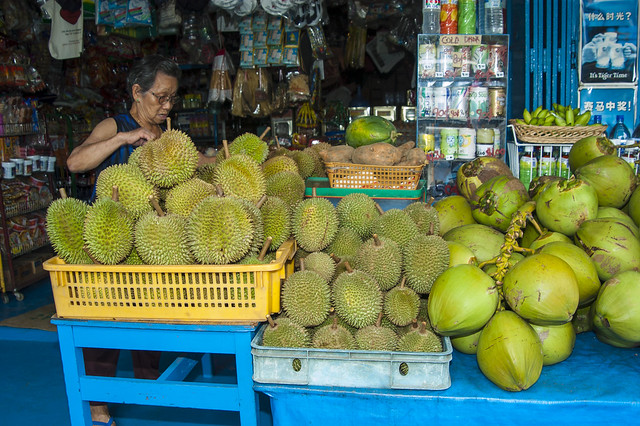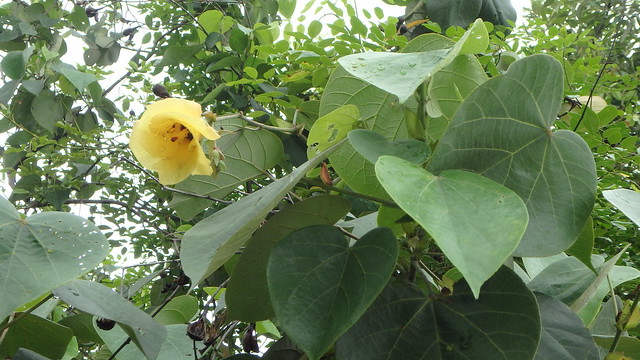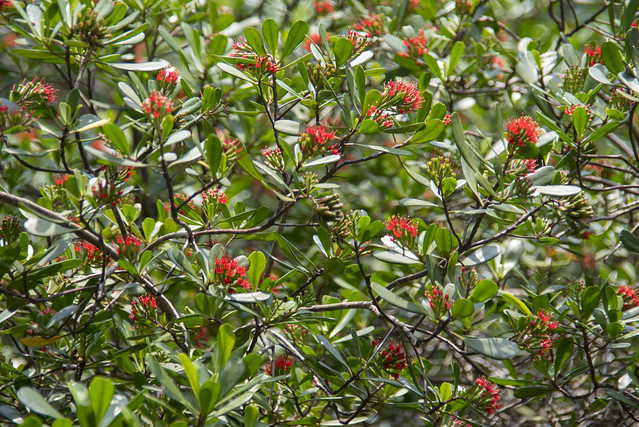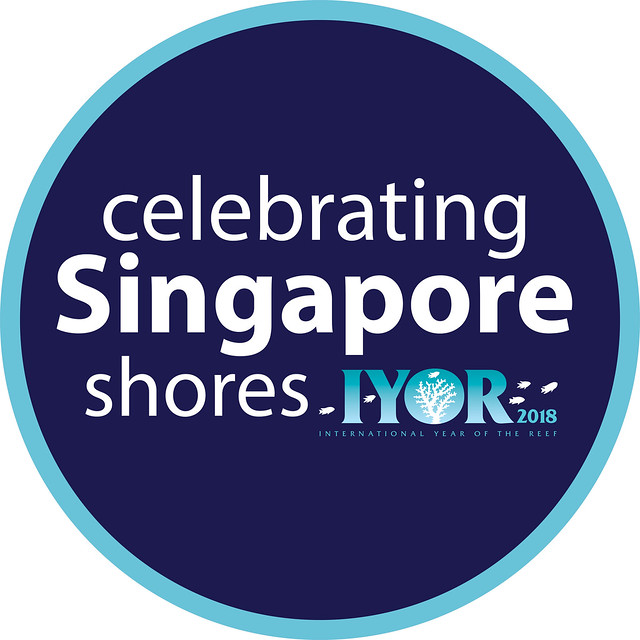Such as the Sea hibiscus with heart shaped leaves and golden yellow flowers. Mangrove flowers are also serious business. If we love durians, we must love mangrove flowers!
The Sea hibiscus (left photos) is not the only coastal shrub with heart-shaped leaves. On the underside of the leaf, there are tiny slits which produce nectar that attracts ants. The Baru-baru (right photos) also has heart-shaped leaves but doesn't have these slits on the underside of the leaf.
The Sea hibiscus (left photos) has lovely bright yellow flowers that turn pink then red as they age. The Baru-baru (right photos) also has yellow flowers that turn pink.
Spectacularly blooming mangrove plants include Teruntum merah.
The usually boring and dinghy Dungun looks positively bridal when it's in bloom. With showers of fuzzy pink bell-shaped flowers.
Here's a closer look at these flowers: Clockwise from left Teruntum merah, Teruntum putih, Nyireh and Dungun.
Climbers and shrubs in the mangroves also have pretty flowers: Clockwise from left, pretty pink Common derris flowers turns mangroves into a bridal bower, Mangrove Wax plant's lovely ball of flowers, cute little clusters of Chengam, neat cones of blossoms on the Jeruju or Sea holly, tiny pink flowers of Dungun air.
Mangrove flowers = Durians
If you love durians, then you must love mangroves flowers ! Bats pollinate durian flowers, which are pom-pom shaped and open at night. These bats eat the nectar and pollen of the flower.
How often do durian trees flower? Once or twice a year. If a bat were to rely only on durian flowers, it would starve to death!
 |
| Durians at Pulau Ubin are said to be the best in Singapore! And Pulau Ubin has lots of mangroves too. |
Some mangrove trees have similar night blooming pom-pom shaped flowers. And they bloom more regularly, all year round. In Singapore mangroves, these include the beautiful and still commonly seen Perepat. And the rarer Berembang and Gedabu, both listed as Critically Endangered is the Singapore Red Data Book.
These mangrove trees support populations of bats, that also pollinate durian flowers when they bloom. Without mangroves, there would be less bats, and less durians! So let's love and protect our mangroves, so we can have bats and durians too!
This article is written for Celebrating Singapore Shores as part of International Year of the Reef 2018.









